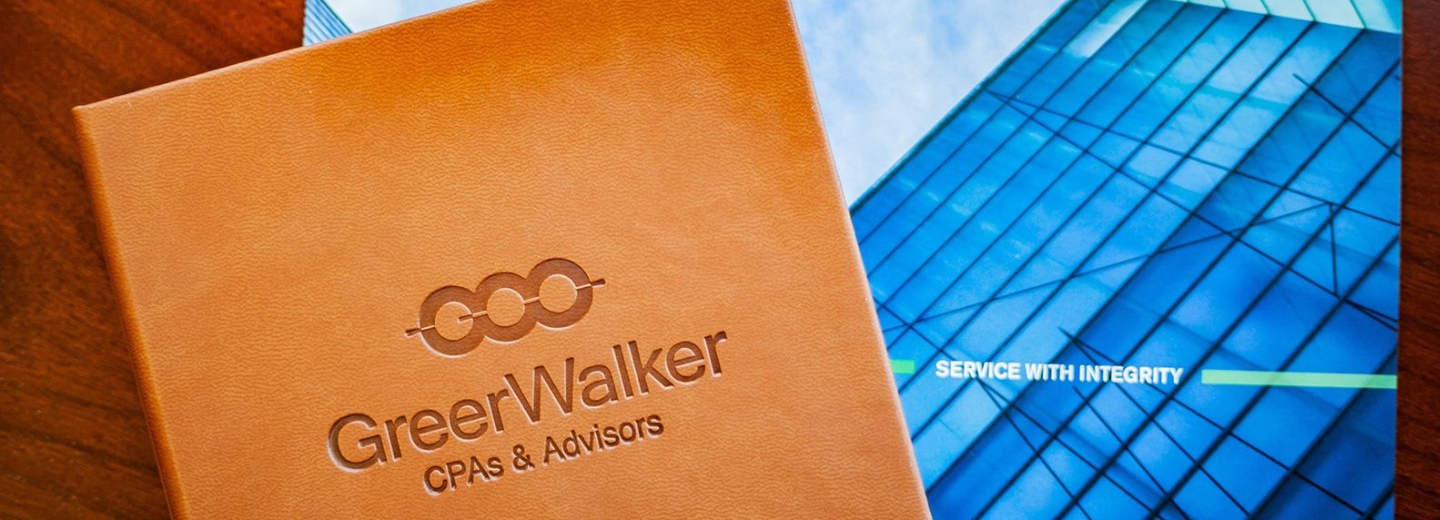
GreerWalker is a proud member of RSM US Alliance, a premier affiliation of independent accounting and consulting firms in the United States. RSM US Alliance provides our firm with access to resources of RSM US LLP, the leading provider of audit, tax and consulting services focused on the middle market. RSM US LLP is a licensed CPA firm and the U.S. member of RSM International, a global network of independent audit, tax and consulting firms with more than 43,000 people in over 120 countries. Our membership in RSM US Alliance has elevated our capabilities in the marketplace, helping to differentiate our firm from the competition while allowing us to maintain our independence and entrepreneurial culture. We have access to a valuable peer network of like-sized firms as well as a broad range of tools, expertise, and technical resources. For more information on how GreerWalker can assist you, please call (704) 377-0239.
Broker-dealers need to understand how the Financial Industry Regulatory Authority (FINRA) amendments to FINRA Rule 2231 will affect them.
The eight new amendments in Regulatory Notice 23-02—which go into effect Jan. 1, 2024—will bring several important updates for how entities deliver or relay information on account statements to their customers.
While these amendments will not take effect until next year, broker-dealers should be proactive in assessing what the changes will mean for them and how they will implement the amendments. The rule update likely won’t require major overhauls for most entities, but teams need to consider implications for multiple business functions including operations, compliance, legal, counter-parties and risk.
Amendment overview
FINRA Rule 2231 and New York Stock Exchange Rule 409T both govern the obligation of member firms carrying customer accounts to deliver account statements to customers on at least a quarterly basis. However, the NYSE provisions and Rule 2231 differed in some ways, as FINRA explained in its notice about the amendments.
The key differences between the NYSE provisions and Rule 2231 were as follows:
- The NYSE provisions address the transmission of confirmations, statements or other communications to other persons or entities subject to specified conditions and exceptions.
- Unlike Rule 2231, NYSE provisions dictate the disclosures that must be made in a customer account statement, including for externally held assets.
- NYSE provisions contain requirements for use of third-party agents, logos, trademarks and summary statements.
- Unlike Rule 2231, NYSE provisions set forth the standards for holding mail for a customer.
To harmonize these differences, the U.S. Securities and Exchange Commission approved the incorporation of the following NYSE provisions into FINRA’s Rule 2231:
- Carrying agreements: This rule requires that each carrying agreement in which accounts are to be carried on a fully disclosed basis shall specify the responsibilities of each party to the agreement.
- Transmission of customer account statements to other persons or entities: Firms must send customer statements showing security and money positions and entries at least quarterly, with certain transactions exempting firms from the requirement.
- Use of electronic media to satisfy delivery obligations: Firms can fulfill the obligation by using electronic media, subject to compliance with SEC standards regarding the use of electronic media for delivery purposes.
- Holding of customer mail: This amendment allows firms to hold mail for customers who will not be receiving mail at their usual address, so long as the firm receives written instructions from the investor that includes the time period in which the firm is requested to hold the customer’s mail, subject to limitations stated in the rule.
- Information to be disclosed on statements: Specific information must be clearly and prominently disclosed on the front of the account statement, including the identity of the introducing and carrying firm, if different, and their respective contact information for customer service.
- Assets held externally: Assets that the member firm does not carry on behalf of a customer and that are not included on the member firm’s books and records must be clearly and distinguishably separated on the statement, following specific criteria.
- Use of logos, trademarks, etc.: Where the logo, trademark or other similar identification of a person (other than the introducing firm or carrying firm) appears on a customer account statement, the identity of such person(s) and the relationship to the introducing, carrying or other firm included on the statement must be provided.
- Use of summary statements: There are specific requirements when a member holds a customer’s account and another entity separately offers financial related products or services to the same customer seeks to jointly provide their respective customer account statement together with a statement summarizing or combining assets held in different accounts.
Key areas of focus
As broker-dealers begin thinking about the impact of these amendments, they should focus on the operations, compliance and legal functions of their business, as well as counter-party implications. On the legal front, for instance, firms will need to consider whether they need to include additional disclosures to customers. For counter-party implications, broker-dealers will need to determine what the rule change means for the use of other organizations’ logos and trademarks.
Across all these areas, firms will need to take a two-step approach to adopting these new FINRA rules. Those steps are:
- Assessing what applies: Broker-dealers need to review the details of each of the eight amendments and understand which are applicable to their organization. Some of the amendments may be more widely applicable than others.
- Implementing changes: Firms can prepare by meeting periodically with internal stakeholders to strategize implementation of the amendments that are applicable to their firm, starting with updated written supervisory procedures. In addition, teams should refer to complementary rules and regulatory notices associated with the changes, such as 17a-4, Regulatory Notice 98-3, and SEA Rule 10b-10.
The implementation process will look different for firms that prepare customer statements in house than it does for firms that use an outside vendor to do so. While those that prepare their own customer statements will need to analyze the eight points in these amendments in house, those with third-party vendors will need to ensure those vendors are assessing the rule update and will be ready for the 2024 implementation. FINRA’s Regulatory Notice 21-29 reminds firms of their supervisory obligations relating to outsourcing to third-party vendors. Firms should also expect their external auditor to determine a risk-based approach to the implementation of these updates.
Let’s Talk!
Call us at (704) 377-0239 or fill out the form below and we’ll contact you to discuss your specific situation.
This article was written by Paul Nockels, Bharat Jain, Isaac Husseini and originally appeared on 2023-04-03.
2022 RSM US LLP. All rights reserved.
https://rsmus.com/insights/industries/financial-services/insights-for-broker-dealers-about-finra-customer-statements-rule.html
RSM US Alliance provides its members with access to resources of RSM US LLP. RSM US Alliance member firms are separate and independent businesses and legal entities that are responsible for their own acts and omissions, and each are separate and independent from RSM US LLP. RSM US LLP is the U.S. member firm of RSM International, a global network of independent audit, tax, and consulting firms. Members of RSM US Alliance have access to RSM International resources through RSM US LLP but are not member firms of RSM International. Visit rsmus.com/aboutus for more information regarding RSM US LLP and RSM International. The RSM(tm) brandmark is used under license by RSM US LLP. RSM US Alliance products and services are proprietary to RSM US LLP.

GreerWalker is a proud member of RSM US Alliance, a premier affiliation of independent accounting and consulting firms in the United States. RSM US Alliance provides our firm with access to resources of RSM US LLP, the leading provider of audit, tax and consulting services focused on the middle market. RSM US LLP is a licensed CPA firm and the U.S. member of RSM International, a global network of independent audit, tax and consulting firms with more than 43,000 people in over 120 countries. Our membership in RSM US Alliance has elevated our capabilities in the marketplace, helping to differentiate our firm from the competition while allowing us to maintain our independence and entrepreneurial culture. We have access to a valuable peer network of like-sized firms as well as a broad range of tools, expertise, and technical resources. For more information on how GreerWalker can assist you, please call (704) 377-0239.









